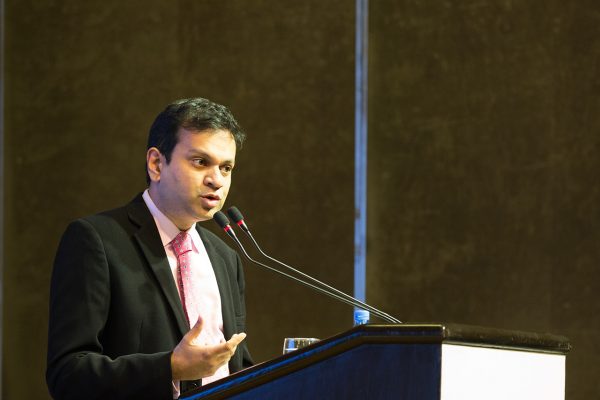The emotional weapon facing Bangladeshi children
Reading Time: 3 minutes
Universal discussions on violence often centre on physical abuse and physical torture, but the definition of violence has also expanded to include emotional abuse, which can lead to long-term cognitive disorders. In Bangladesh, reprimanding children – from toddlers to young adults – by beating them has long been socially acceptable. Though it is not abnormal to hear stories of guardians or teachers still beating their wards, there has been a significant decline in the number of people doing so.
Universal discussions on violence often centre on physical abuse and physical torture, but the definition of violence has also expanded to include emotional abuse, which can lead to long-term cognitive disorders. In Bangladesh, reprimanding children – from toddlers to young adults – by beating them has long been socially acceptable. Though it is not abnormal to hear stories of guardians or teachers still beating their wards, there has been a significant decline in the number of people doing so. Some people may still use their hands on their children at home and not admit it, but an even larger number of parents have stopped using such means to punish their children because it is now frowned upon in society. Be it due to non-violence campaigns and government laws or simply the western influence which promotes more sensitive parenting, physical violence towards children is not tolerated in Bangladesh like it once was.
However, the emotional wellbeing of a child is still an alien concept. Relevant secondary reports reflect that the number of children seeking psychological and psychiatric treatment is increasing, inferring that the next generation’s workforce will include a large percentage of youths suffering from cognitive disorders. Although most cases are diagnosed with prolonged or recurring depressive disorders, other disorders are yet to be publicised.
Unfortunately, Bangladeshi society is still quick to dismiss psychological or emotional issues amongst adults, let alone children, often labelling problems like depression as a “rich man’s disease”. Parents are still vastly unaware that the way they behave with their children will greatly affect their psychological health in the long run and could not only impair their own future but could also have a negative impact on the socioeconomic and economic condition of the country. Constant emotional pressure in the developmental years of a child’s life can leave a heavy mark on their psyche, and it might not even be detected until many years later.
Sometimes a child’s greatest obstacle to a successful life is their parents themselves. The standard, unapologetic “parents are always right” attitude, in which parents dictate every move a child makes and have unreasonably high expectations from the child, is a very common form of emotional abuse. This not only puts additional pressure on the child but also leads to depressive disorders once they fail to meet the expectations. A dominant, controlling parent can be as bad as a negligent one – in fact, domination is just another form of negligence. Setting strict rules, like what a child cannot see, cannot do, cannot play, cannot eat, cannot go to and so on, can stunt their natural emotional growth. Constantly trying to meet strict demands can result in a child having persistent anxiety about their own capabilities. These children could grow up with a feeling of intense hostility towards their parents and be unable to think or act independently. Some children can cope with this form of emotional abuse as they grow up because, like physical strength, some children are born mentally stronger than others. But for others, emotional abuse has the potential to make a child completely dependent on the parent even as an adult toys or mix in the wrong circles, start bad habits like drugs, or get into a detrimental relationship in order to escape their unhealthy family environment.
Physical abuse against children is still a major issue in many countries around the world, especially the unnecessary use of physical violence as a form of disciplining children. However, the depths of emotional abuse that a child faces – especially in cultures where emotional wellbeing is not given much importance – is a sensitive issue that needs to be explored using tactful methods and subtle community messages. On one hand, a child should be encouraged to express themselves, play with other children and be allowed to enjoy the carefree life that only a child can lead. But on the other hand, a child’s emotional wellbeing should not be underestimated because of their age, as it has the ability to shape their personality as they grow up.
Mehereen Aziz is a communications officer for the Civil Society Alliance for Scaling Up Nutrition Bangladesh, of which BRAC is currently the secretariat.
The views expressed here are the author’s own, written on the occasion of Universal Children’s Day 2013. This year’s theme is stop violence against children.






